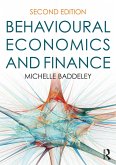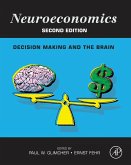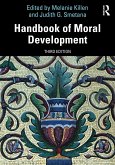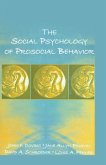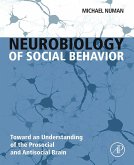The book will further explore individual differences in prosocial behavior, the development of prosocial behavior, and how a personal neural signature forms that facilitates or hampers cooperation. The book includes game theory research, neuroimaging studies, and research in traditional cognitive psychology to better understand human decision-making re prosocial behavior. This will be of interest to cognitive, developmental, and social psychologists, as well as neuroscientists, and behavioral economists.
- Explores: Individual differences in prosocial behavior, The development of prosocial behavior, How a personal neural signature forms that facilitates or hampers cooperation
- Includes: Game theory research, Neuroimaging studies, Research in traditional cognitive psychology
Dieser Download kann aus rechtlichen Gründen nur mit Rechnungsadresse in A, B, BG, CY, CZ, D, DK, EW, E, FIN, F, GR, HR, H, IRL, I, LT, L, LR, M, NL, PL, P, R, S, SLO, SK ausgeliefert werden.



